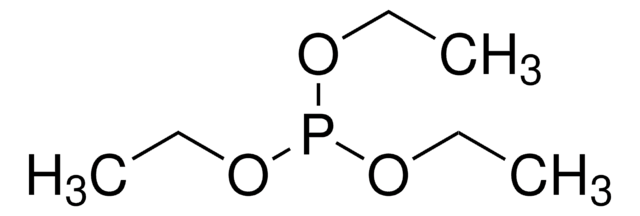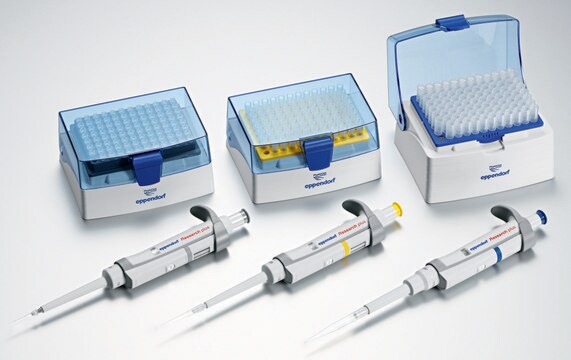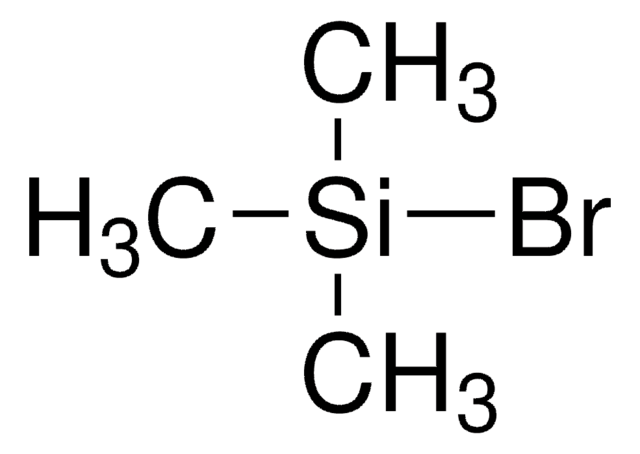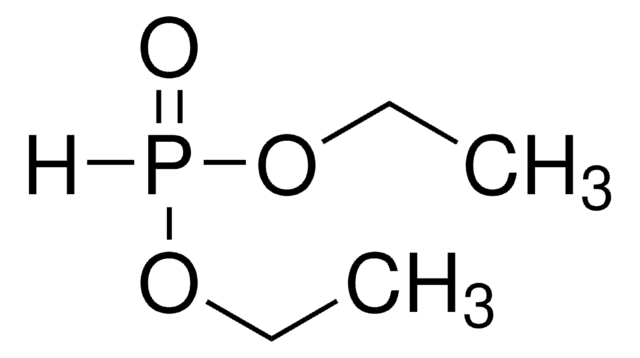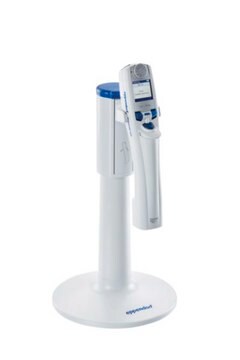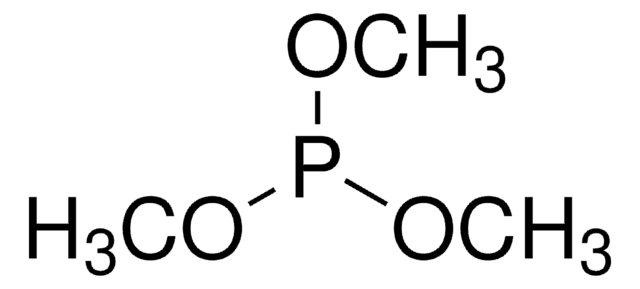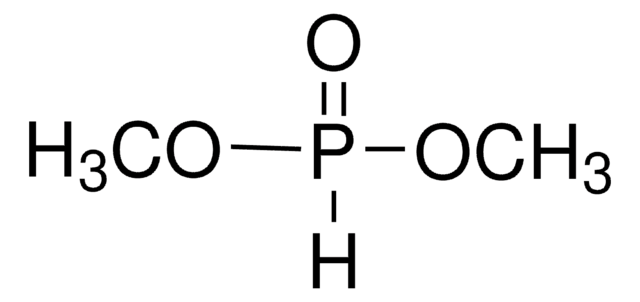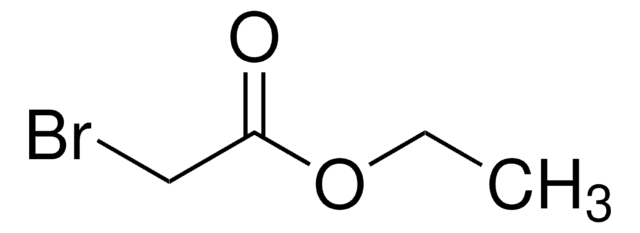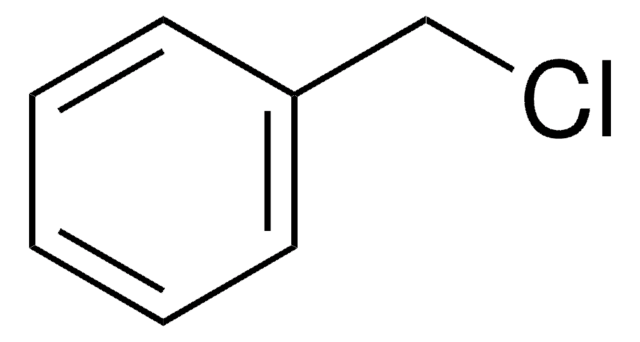8.00549
Triethylphosphite
for synthesis
Synonym(e):
Triethylphosphite
About This Item
Empfohlene Produkte
Dampfdruck
<6 hPa ( 20 °C)
Qualitätsniveau
Assay
≥97.0% (GC)
Form
liquid
Selbstzündungstemp.
250 °C
Wirksamkeit
2800 mg/kg LD50, skin (Rabbit)
Expl.-Gr.
3.75-42.5 % (v/v)
bp
156-158 °C/1013 hPa
mp (Schmelzpunkt)
-112 °C
Übergangstemp.
flash point 52 °C
Dichte
0.956 g/cm3 at 20 °C
Lagertemp.
no temp limit
InChI
1S/C6H15O3P/c1-4-7-10(8-5-2)9-6-3/h4-6H2,1-3H3
InChIKey
BDZBKCUKTQZUTL-UHFFFAOYSA-N
Anwendung
- Mechanism of acylative oxidation-reduction-condensation reactions: Research details the use of triethylphosphite as a stoichiometric reductant in acylative oxidation-reduction-condensation reactions, utilizing benzoisothiazolones as oxidants. This study provides insights into the reaction mechanisms and potential applications in synthetic chemistry (Gangireddy et al., 2017).
- Synthesis and antitumor activity of oxazaphosphinane derivatives: A study on the efficient synthesis of novel oxazaphosphinane derivatives using triethylphosphite, exploring their antitumor activities. The research includes X-ray crystallography, DFT studies, and molecular docking to evaluate the potential medical applications (Bahadi et al., 2023).
- Reductive Ireland-Claisen Rearrangements: Triethylphosphite is highlighted in copper-catalyzed reductive Ireland-Claisen rearrangements of propargylic acrylates and allylic allenoates, demonstrating its role in facilitating complex molecular transformations in organic synthesis (Guo et al., 2022).
- Desulfurization under UV light: Triethylphosphite is used in the synthesis of deoxyglycosides through desulfurization processes under UV light, showcasing its utility in glycoscience and the development of new glycoconjugates for various applications (Ge et al., 2017).
- Detection and identification of volatile trialkylphosphites: A derivatization strategy employing triethylphosphite for the detection and identification of volatile trialkylphosphites using liquid chromatography-online solid phase extraction and offline nuclear magnetic resonance spectroscopy, highlighting its analytical applications (Mazumder et al., 2015).
Hinweis zur Analyse
Dichte (d 20 °C/ 4 °C): 0.955 - 0.957
Identität (IR): entspricht
Signalwort
Warning
H-Sätze
Gefahreneinstufungen
Acute Tox. 4 Oral - Aquatic Chronic 3 - Flam. Liq. 3 - Skin Sens. 1B
Lagerklassenschlüssel
3 - Flammable liquids
WGK
WGK 2
Flammpunkt (°F)
129.2 °F - closed cup
Flammpunkt (°C)
54 °C - closed cup
Analysenzertifikate (COA)
Suchen Sie nach Analysenzertifikate (COA), indem Sie die Lot-/Chargennummer des Produkts eingeben. Lot- und Chargennummern sind auf dem Produktetikett hinter den Wörtern ‘Lot’ oder ‘Batch’ (Lot oder Charge) zu finden.
Besitzen Sie dieses Produkt bereits?
In der Dokumentenbibliothek finden Sie die Dokumentation zu den Produkten, die Sie kürzlich erworben haben.
Kunden haben sich ebenfalls angesehen
Unser Team von Wissenschaftlern verfügt über Erfahrung in allen Forschungsbereichen einschließlich Life Science, Materialwissenschaften, chemischer Synthese, Chromatographie, Analytik und vielen mehr..
Setzen Sie sich mit dem technischen Dienst in Verbindung.